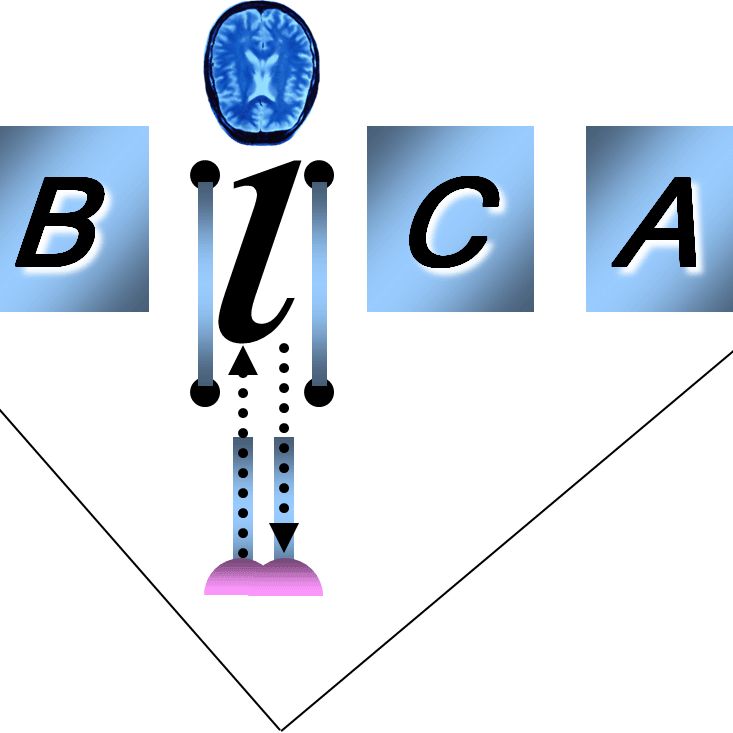Call for Papers and Talks
Greetings! We are delighted to invite you to present and/or publish your work at the 14th BICA*AI conference!
On mobile, tap on the white background to make it brighter.
Submissions of all categories are invited to the 2023 Annual International Conference on Brain-Inspired Cognitive Architectures for Artificial Intelligence, the 14th Annual Meeting of the BICA Society (BICA*AI 2023), held in Ningbo, China on October 13-15, 2023. Offline and online participants are welcome. The focus of this year BICA is expressed by the motto at the bottom of the page, that belongs to our keynote speaker, Dr. Paul Robertson:
The future of AI is in interacting fluidly with humans.
More generally, submissions of papers and talk abstracts are expected in all domains of science and technology that directly or indirectly may help us to make an advance toward the BICA Challenge. Specifically, submissions in the following areas are expected.
Artificial Intelligence:
- Creativity, goal reasoning and autonomy in artifacts
- Embodied vs. ambient intelligence
- Language capabilities and social competence
- Learning by reading, by observation, by reasoning and analogy
- Robust and scalable machine learning mechanisms
- Self-regulated learning, bootstrapped and meta-learning
- The role of emotions in artificial intelligence and their BICA models
- Tests and metrics for BICA in the context of the BICA Challenge
Cognitive Science:
- Perception, reasoning, decision making and action in BICA
- Combining natural and artificial approaches to cognition
- Comparison of different forms of learning and memory
- Theory-of-Mind, episodic and autobiographical memory in cognitive systems
- Introspection, metacognitive reasoning and self-awareness in BICA
- Models of learning and memory: robustness, flexibility, transferability
- Natural language and its role in intelligence, cognition and interaction
- Unifying frameworks and constraints for cognitive architectures
Neuroscience:
- Bridging the gap between artificial and natural information processing
- Cognitive and learning mechanisms informed by neuroscience
- Neural correlates of cognitive and meta-cognitive processes
- Robustness, scalability and adaptability in neuromorphic systems
- Neurophysiological underpinnings and implications of deep learning models
- Physiological mechanisms of memory formation and (re)consolidation
- Representation of contextual and conceptual knowledge in neural systems
Social, Economic and Educational Sciences:
- Mixed-initiative systems based on inspirations from studies on brain and mind.
- Agents possessing human-level social and emotional intelligence
- BICA in learning and tutoring technologies and education
- BICA models of self and their application to perception and action
- Representation, perception, understanding and expression of emotions
- Virtual characters, artificial personalities and human-compatibility
- Agent-based modeling of intelligent social phenomena
General:
- Mathematical basis for BICA and fundamental theoretical questions in BICA research
- Alternative substrates for implementation of BICA: smart materials, neuromorphic, quantum and biocomputing
- Alternative approaches to the development of BICA such as: evolutionary, system-theoretic, educational
- Fundamental practical and theoretical questions in BICA research and technology
- Cognitive Decathlon and Grand Challenges for BICA as components of the BICA Challenge
- Critical mass for a universal human-level learner and a roadmap to the BICA Challenge
- Metrics, tests, proximity measures and the roadmap to human-level / human-compatible AI
- Leveraging the cloud, world-wide-web, and social-media: possible role for BICA in big data?
- Interdisciplinary research opportunities and ideas for new initiatives
- International trends in funding of BICA research
Format and Agenda
The format of the conference is a 3-day hybrid event (offline and online). The meeting will include paper presentations, keynotes and plenary talks, panel discussions, and demonstration showcases. The working language is English.
Presentation
The following presentation modalities are acceptable at BICA*AI 2023 (please see the Submission tab for details):
- Keynote
- Invited Talk
- Regular Talk
- Lightning Talk
- Panelist Entry
- Pre-recorded Talk
- e-Poster or Clip
- Poster or Demo
Publication
The volume of BICA*AI 2023 Proceedings, including accepted papers and abstracts, will be published in the Springer’s Studies in Computational Intelligence book series (indexed in Scopus). Additionally, extended versions of selected papers will be invited for publication in Cognitive Systems Research, a Q1 academic journal published by Elsevier.
Submission
All paper submissions must be made via EasyChair following the submission link. Papers must be formatted based on the Springer template. In this year we encourage submissions of longer papers: from 6 to 20 pages.
Registration
The early-bird registration fee is $200 USD for online participation and $400 USD for onsite participation (tax not included). Please see the Registration tab for details.
Venue
The conference will be held in the Golden Port Hotel in Ningbo, China. Some events of BICA*AI 2023 will be hosted at the Shangrila Hotel in Ningbo. And, as always at BICA, we expect a memorable cultural program in the nearby places of interest (possibly including Shanghai and more).
With an accepted paper or abstract or without, you are welcome to join BICA*AI 2023. We are looking forward to seeing you in Ningbo in October!
—BICA*AI 2023 COC






